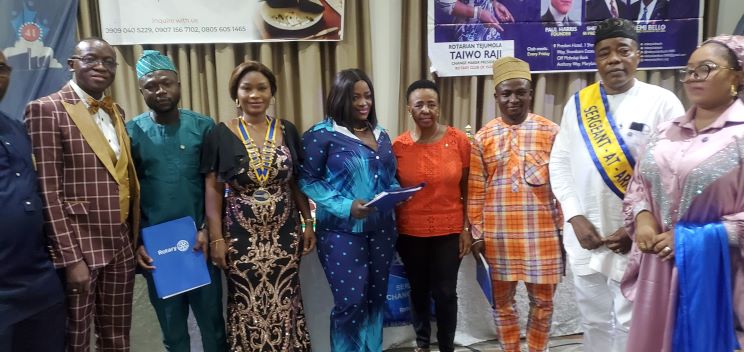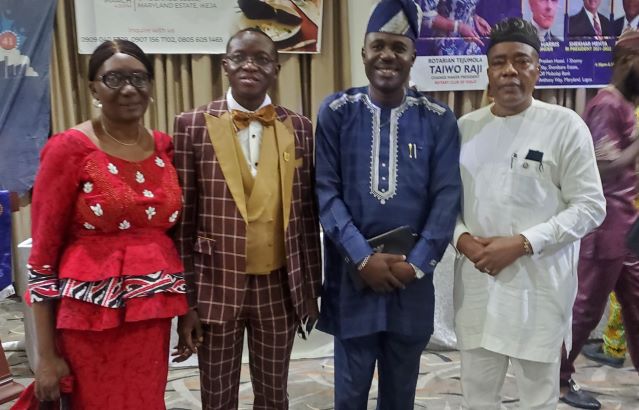Segun Atanda/
Peace rules the day, where reason rules the mind, says the English poet, William Collins three centuries ago.
This line of reasoning was upheld at the weekend by retired Deputy Inspector General of Police (DIG) Leye Oyebade mni, who delivered a lecture on Peace Building and Conflict Resolution at L’eola Hotel, Maryland, Lagos, where the Rotary Club of Isolo, led by the Change Maker President – Rotarian Tejumola Taiwo Raji, hosted visiting Rotarians from Kenya.
Kenya is home to the first Rotary Club in East Africa.
Senator Ganiyu Olanrewaju Solomon played key roles at the event, where he raised funds for the organization as he served as the Sergeant-at-arms.
Coming at a time when mankind is crying out for peace amid conflicts in Europe that are threatening to snowball into World War III with disastrous consequences, DIG Oyebade, who is also the Chairman/CEO, Rontol Ventures Ltd and an apostle of pro-active policing, harped on the need to embrace negotiation, mediation, and reconciliation as vital means of conflict resolution.
He said, “There’s conflict everywhere, even between husband and wife because people see things differently. There must be an avenue for us to resolve our conflicts. No two people perceive the same thing the same way.
“When I write 6; to the person sitting down there it is 9, and we are both looking at it. That’s why it is important that as Homo Sapiens, we can sit down and find a means of resolving conflicts whenever they arise.”
According to Oyebade, efforts to reduce conflicts and crises frequently fail, sometimes due not only to the complex nature of humanity but also to the methods and means employed by those involved in mediation.
He wondered why there are challenges when it comes to conflict resolution, as he discussed strategies and the means of resolving conflicts.
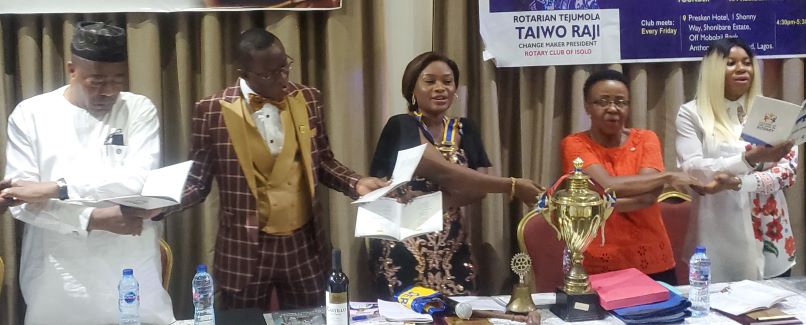
“…emotions must be brought under control. Let your minds regulate the heat of the sentiments and emotions of the moment like a thermometer regulates the temperature”
Oyebade said that leaders must build societies, institutions, policies, and relationships that are better able to sustain peace and justice.
He spoke about peacebuilding, especially in a complex society like Nigeria with ethnic and religious diversities.
“A lot of work must be done to build peace in such communities. When an Ijebu man is speaking, Egba man may not understand, and they are the same Yoruba,” he said. “Peacebuilding is a task, a huge assignment, and it aims to resolve injustice in non-violent ways. And it’s to transform the structural conditions that generate conflicts.”
He spoke about the conflict in eastern Nigeria where groups issue sit-at-home orders and recalled the Agbekoya Parapo revolt of 1968 – 1969 that turned Nigeria’s former western region into what was known as the ‘wild-wild-west’.
Oyebade highlighted the Boy’s Scout motto which says, “Be Prepared”.
He told the audience about what he called the 5 Ps in peacebuilding – Proper Planning Prevents Poor Performance.
“If you fail to plan, you plan to fail,” he said.
Oyebade shared his experiences as the DPO Ilupeju, when Senator Solomon was the Chairman at Mushin Local Government and how he applied a lot of community policing and proactive policing strategies.
He also shared his experience as CP in Oyo State when there was a conflict between farmers and herders.
He said, “I simply invited the two leaders to a roundtable conference, and we came out with a communique that till today, I still call the commissioners of police that came after me to just upgrade what we’ve been able to do.
“It’s better to prevent a crime than to be investigating a crime. Prevention is better than cure. Resolution is a difficult assignment. There should be arrangements or procedures that look at preventing crises before they snowball into something that will lead to what is happening between Ukraine and Russia now.
“Peacebuilding is strategic because you have some people that you know that naturally, they can bring people together. They cherish relationships. They can nurture relationships. That is why you see, internationally, they’ve been using some of our former Heads of State to resolve conflicts in crisis areas because of their wealth of experience. When you talk about Nigeria, if it’s just the issue of the civil war that we’ve been able to resolve amongst ourselves, it’s on record that we were able to come back together as a nation.
“There are many conflicts in Nigeria. There’s hardly a day when you wake up and you don’t hear of boundary adjustments… in Abia, even between Oyo and Osun… you find a way of resolving it. Resolving injustice in non-violent ways. The aim is to bring people together to manage crises.
“When conflict breaks up, the next thing is negotiation and mediation. The two parties will be brought, sometimes into a classroom environment. If they can resolve it, the next thing is reconciliation. This is the grounds we are making; we are not shifting grounds here.
“We talk of negotiation, we talk of mediation, and we talk of reconciliation. Sometimes reconciliation can be very difficult. It can go into arbitration. There are specially trained people for that. Where all these fail to bring resolution, there is prosecution. The other side may say, I just must go to court. I am not taking it lightly. These are all the processes…”
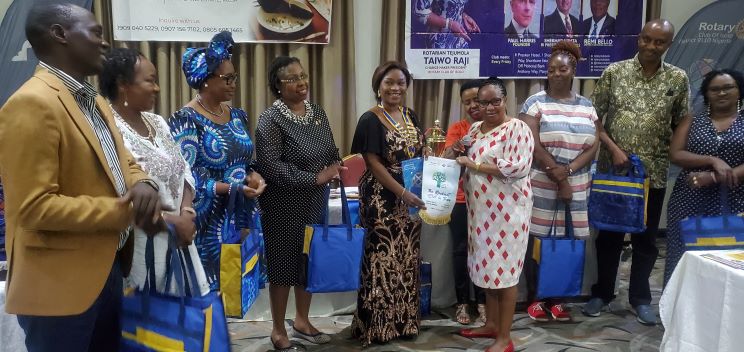
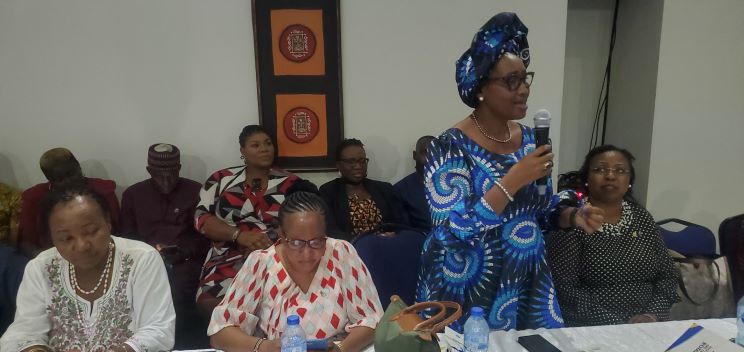
Highlighting conceptual terms and working tools towards conflict resolution and management, Oyebade mentioned styles, strategies, and methods.
He said, “The first one is avoidance. Where one or two of the parties are advised to avoid one another, avoid talking about the issue.”
He cited the Magodo Estate issue and how it was tactically resolved, with the government and the landlords stating their positions in the press.
He however warned that going to the press could also heat matters up.
“When matters are so heated up, the period of avoidance could simmer down the situation. During that period, the parties can think more clearly and possibly come together in more friendly ways after their feelings have settled down.
“Another technique is Direct Command Resolution. It relates more to government. This type of resolution style… when officials or groups of persons resolve conflict situations by power and dominance coming from state authorities. It may be verbal or written.
“Third-Party Intervention. We’ve had some of our Heads of State intervening in crisis in some countries within the African sub-region.
“Negotiation is a skill. If you use the wrong person, he might even add more to the crisis than resolving it.”
Oyebade mentioned how the Bakassi conflict was resolved. In 2005, he was among those who followed the Inspector General of Police to bring down the flag in Bakassi. He said, “When you see the body language of France, you’ll know what we did was the best thing. Nigeria is surrounded by Francophone countries.
“You must marry all procedures. You cannot use one method for every conflict.
“Be wise and be sensitive to the matters of the moment. It’s an assignment that calls for a lot of integrity and dexterity.
“You must look at what led to what. What led to the challenge when OPC came up? What led to the issue of people saying they want to police themselves?”
He reckoned that emotions must be brought under control, “let your minds regulate the heat of the sentiments and emotions of the moment like a thermometer regulates the temperature”.
“Decide the rules of engagement. You decide all these rules before you go into a negotiation. Every situation has its peculiarities and should be treated accordingly.
“We must be able to manage ourselves, concede for the other person. Give and take is always the answer.”
Oyebade was later presented an award by a Past Assistant Governor of the club.

There was much merriment, as participants were treated to sumptuous meals and wines.
After a toast, the Rotarians from Kenya spoke about how well they have enjoyed the visit to Nigeria, the hospitality of the Rotary Club of Isolo, and how much they wished they could stay a week longer.
Joshua Okeho, the Treasurer of the Rotary Club of Milimani, said: “From what we have seen here, it appears we are still joking in Kenya.”
The visitors, including Nancy Gichwugwa, Nancy Kimwele, and Gertrude Mwendah were from various districts in Kenya, including the Rotary Club of Bahari Mombasa; Rotary Club of Nairobi Muthaiga; Rotary Club of Bambini, Rotary Club of Karen, and Rotary Club of Milimani.
Gertrude Mwendah, a retired UN Peacekeeper from Diani, Kenya, shared the experience she had working with Nigerians on peacekeeping missions in Somalia and Rwanda.
She also spoke about her visits to Abuja, the Federal Capital Territory to resolve conflicts. She said that after seeing how good Nigerians were in peacekeeping missions, she used to ask herself: “Why are they going out there to save people and there’s crisis in their own country?”
There were representations from the Rotary Clubs of Ilupeju, Okota, Lekki Phase 1, Maryland, Ikeja, Lagos West, and Lekki Central, including Rotarian Olabisi Sadiq, and Rotarian Jide Ogunjimi.
